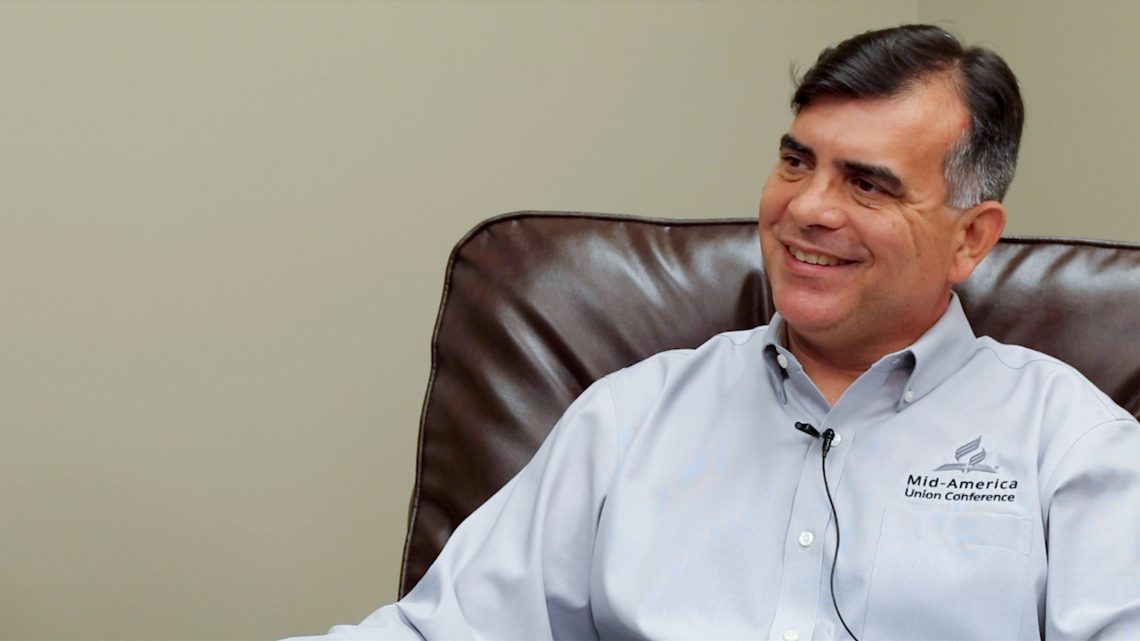Pastor Correa, please tell us where you were raised and how your parents influenced your life.
I was born in northern Argentina and my parents were the teachers in an Adventist school with 100 elementary students, just the two of them. My parents are very strong in their faith and commitment to the church and they had worship with us every day. They taught us that God always has to be first in your life and we are here to serve others.
What has your journey been like coming to this country?
I graduated with a theology degree in Argentina and immigrated with my wife Paula, who is a dietician, to the United States in 2001. I worked in Oregon and Montana conferences and spent 12 years pastoring in the Kansas-Nebraska Conference. Our two sons were born in Montana. The oldest is a first-year student at Union College and our younger son is 12.
What were some of the challenges to becoming acclimated?
I expected to become fluent in English in two months, so my first shock was not being able to communicate as I struggled to learn the language. Also, some cultural customs are different—the food, how Americans think and do things. But when we get to know each other we are not that different. We have the same needs, the same dreams, the same desire for the kingdom of God.
How is life different for your children than it was for you?
Like many families, we speak Spanish at home and English outside the house, so they are living in both worlds. For second generations, sometimes they feel a part of the Hispanic world and sometimes a part of the Anglo world. Sometimes they don’t feel like they fit either place. It’s an identity challenge.
Are there any churches in Mid-America that are catering to second generation worshipers?
I know there is a second service in English for the second generation at one church in Colorado. As a pastor I tell members it doesn’t matter which language or church your children attend. I just want them to follow Jesus.
When you visit the Spanish-speaking churches across our nine-state territory, how different are they?
The language is the same, but there are many cultures and countries represented—Mexico, Puerto Rico, many countries in Central America and South America—and one of the biggest challenges is bringing together all the different cultures. But here we are under a Jesus Christ culture, not a country culture. We want to follow Bible principles and grow and build bridges for working together.
We have growing Hispanic churches in all six of our conferences. What counsel do you have for us in continuing to support them?
Let me tell you a little story. When I was pastoring in Montana the head elder from a small church nearby in Idaho invited me to come and preach in Spanish, and they would provide someone to translate into English. After the service the elder told me he used to think whoever comes to the United States should learn the language and worship in English. Then he was sent to Europe for his work, and during his weeks there he attended church and experienced what it was like not to be able to understand anything going on around you. That was a turning point for him, and now he tries to ensure that everyone in his congregation can be fed spiritually. It is nice to know that whoever is preparing the activities thought of you and wanted you to feel welcome. Everyone understands a smile. Having a new heart will help us treat others with respect and love.
Watch the full interview on our YouTube channel.










